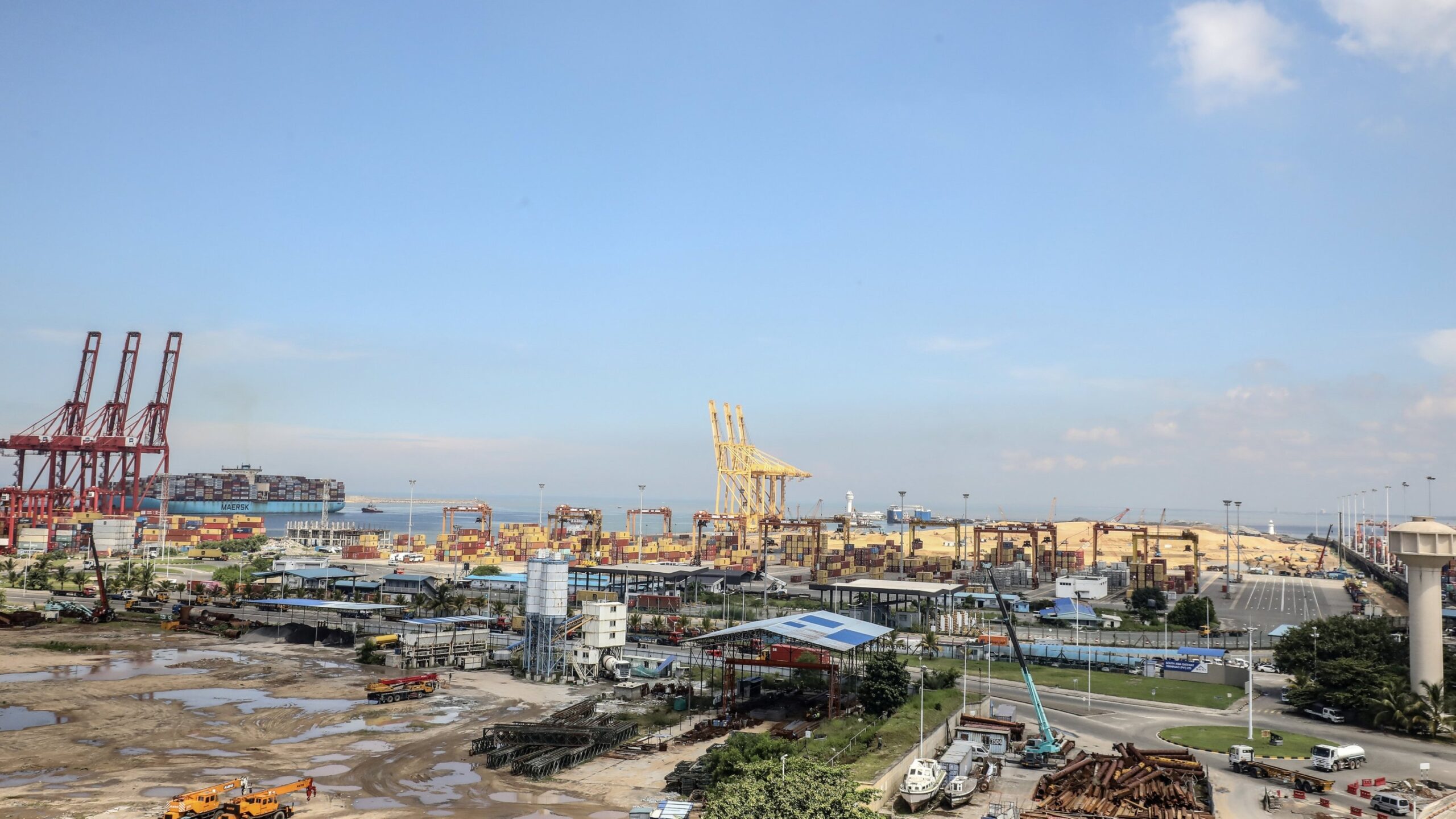Expanding America’s efforts to fund infrastructure in strategically important portions of Asia, a U.S. foreign aid agency announced on Wednesday that it will grant $553 million to create a deepwater shipping-container terminal at the Port of Colombo in Sri Lanka.
The financing package is connected to Adani Ports, a company that Prime Minister Narendra Modi of India closely oversees and which is still reeling after an attack in January by short sellers. Adani will collaborate with Sri Lankan partners to create the port.
The funding from the US International Development Finance Corporation is similar to the large-scale agreements that China’s development banks have made over the last ten years all over the world. China extended loans to strengthen relations throughout Asia, including Sri Lanka, as part of its Belt and Road Initiative, which is at the core of President Xi Jinping’s foreign policy. The goal now is for the US and, to a lesser extent, India, to catch up with, if not surpass, China’s record.
During the Trump administration, the Development Finance Corporation was established to provide funding for overseas infrastructure projects, working in tandem with the State Department to uphold American foreign policy and limit Chinese influence.
At a press briefing in Colombo, the capital of Sri Lanka, Scott Nathan, the chief executive of the U.S. agency, stated, “The realities in this region and for global trade make this a critical addition to our global infrastructure.” He was accompanied by Karan Adani, the CEO of Adani Ports and the son of Gautam Adani, the group’s founder. In his remarks, Karan Adani appeared to go beyond defense-related matters by stating that the additional half-billion dollars represents “regional security.”
Neither of them specifically addressed China as they alternated in explaining how the loan shows America’s and India’s commitment to this indebted island country and to the rest of the Indo-Pacific, but they did not need to.
For Sri Lanka, an international port project holds particular importance. Approximately half of all commerce boats in the globe travel through the nation, which is strategically located between the Strait of Malacca and the Suez Canal. The busiest port in the Indian Ocean, which is located in Colombo, has been operating at full capacity for many years.
A massive deepwater port was constructed near the island’s rather isolated southern shore by Chinese banks and engineering companies under the rule of the Rajapaksas, the family who ruled Sri Lanka until the economy crashed in 2022. The project’s moniker, Hambantota, was the unspoken issue during Wednesday’s inauguration remarks.
Constructed at an expense exceeding one billion dollars and with conditions that Sri Lanka could never pay back, Hambantota—located in a political stronghold of the Rajapaksa family—was ultimately given to China on a 99-year lease, along with 15,000 acres of adjacent property. Prior to the pandemic impeding trade in 2020, the port was only processing 1.2 million tonnes of goods annually. With the addition of additional terminals, the port of Colombo will handle over 30 million tonnes of cargo annually, a fourfold increase over current levels.
The U.S. loan will need tighter emulation of India’s long-term project financing model. This has required doing a lot of business with the biggest corporations in the nation under Mr. Modi. One of the most well-known is the Adani Group, whose stock price had soared by 2,500 percent in only five years before to being severely damaged by a January investigation by New York-based Hindenburg Research, which accused the conglomerate of accounting fraud and stock manipulation.
The Adani Group’s worth plummeted, necessitating the cancellation of an IPO. The business said at the time that its overseas detractors had launched a “calculated attack on India” and shown “contempt for Indian institutions.” The majority of the conglomerate’s equities continue to trade much below their peak, and Mr. Modi no longer frequently appears in public with Gautam Adani. However, the conglomerate’s financial situation has stabilised, and several of its component businesses—Adani Ports, for example—have regained their market worth.
The willingness of the Biden administration to do business with the Adani Group might enhance the company’s standing overseas. A “reaffirmation by the international community of our vision, capability and our governance,” according to Karan Adani, was the port agreement.
Additionally, Washington’s willingness to fund a convoluted and important infrastructure agreement is a step forward for its regional goals. The statement, “The relationship between Sri Lanka, the U.S., and India is multifaceted and holds great promise,” appears to support Mr. Adani’s opinion.

